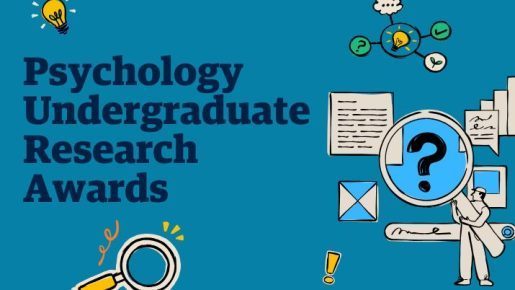

The Governor General’s Academic Medals are among the most prestigious awards that students in Canadian schools can receive. Photo credit: Office of the Governor General of Canada.
Ellen Jopling, a PhD student in the Department of Psychology’s clinical psychology program, has been awarded a 2020 Governor General’s Academic Gold Medal.
Presented annually by UBC on behalf of the Governor General of Canada, two Gold Medal awards are presented to students with the highest academic standing as a doctoral student and as a master’s student. Jopling is being recognized for her excellence as an academic and as a researcher as a master’s student.


Ellen Jopling
Her master’s thesis investigated whether the ability to disengage from emotional information is associated with biological responses to stress in preadolescents. Jopling was drawn to clinical psychology to help youth who are struggling with depression, anxiety, and stress.
“It was a surreal moment when I found out that I had been awarded with the Governor General's Gold Medal. It is deeply validating. I love the work that I do, and it is rewarding in and of itself - but receiving this kind of recognition reinforces that I'm on the right path, and only increases my determination to spend my career working to make a difference for youth struggling with mental illness through impactful research, clinical work, and advocacy efforts.”
Jopling joins us for a Q&A, where we learn more about her important research and her future plans along this path.
Why you chose to study clinical psychology?
I chose to pursue a doctorate in clinical psychology because I wanted to develop the skills needed to help youth struggling with depression, anxiety, and stress-related disorders both directly, through clinical work, and indirectly, through meaningful research. Here at UBC, the clinical psychology program trains graduate students to become world-class researchers and provides exemplary clinical training. It was a perfect fit.
Can you tell us more about your research?
My master’s research examined associations between cognitive biases and biological responses to stress during preadolescence, an important developmental period when many affective disorders (such as depression and anxiety) first emerge. Further, dysregulated biological system responses to stress during this time have been shown to predict the later onset of both depression and anxiety disorders. I found that individual differences in the ability to remove emotional information from attention and memory were associated with both adaptive and maladaptive patterns of reactivity and recovery across multiple biological systems, including the neuroendocrine system and the autonomic nervous system. By identifying candidate mechanisms underlying maladaptive responses to stress, this work can support the development of interventions that could help to promote resilience against the detrimental effects of both acute and chronic life stress in youth.
I feel so lucky to be able to complete my doctoral work under Dr. Joelle LeMoult’s supervision; her mentorship is unparalleled.
Any next steps or plans in your career
Moving forward, I hope to continue working alongside youth who are struggling with mental illness and their families. Further, I hope to conduct meaningful research that promotes a greater understanding of the factors associated with trajectories of risk and resilience among youth at risk of developing depression, anxiety, and stress-related disorders.


